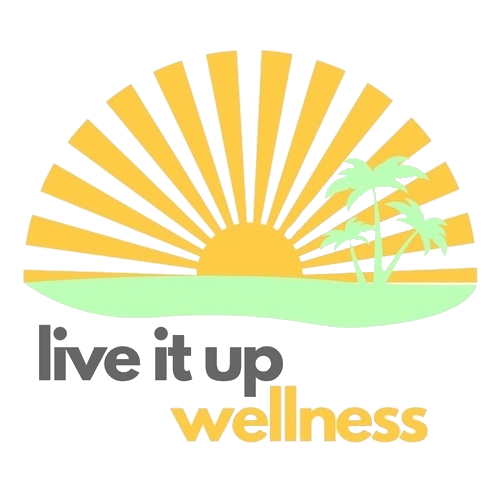Calories. They’re in all food and we need them to function. But when it comes to weight loss, people obsess over them. How many times have you heard “you must be in a calorie deficit to achieve weight loss?” Too many.
If you’ve ever counted calories, you probably were frustrated, starving, and you likely failed at reaching your goal or gained back everything you lost once you stopped dieting.
About Calories
The first studies and use of the calorie as a measurement was in the late 1700s/early 1800s. Calories were defined as the amount of energy required to heat 1 kilogram of water by 1 degree Celsius (1.8 degrees Fahrenheit). Or, how much energy does it take to burn up a food. This is still how they are measured.
But your body is not boiling or burning up your food… It is chemically breaking it down with enzymes, stomach acid, etc. Is this then a reasonable measure for our food?
Calories are calculated by adding up the grams of protein, fat, and carbohydrates in a food and multiplying by the appropriate calorie count per gram of each macronutrient.
There are 4 calories per gram of protein, 4 calories per gram of carbohydrate, and 9 calories per gram of fat.
We slap that total calories number on a food package and those numbers now rule our understanding of food.
Diet Coke
Low-Cal Dieting
I’m not saying calories don’t matter and that intake vs. output aren’t a thing but… I do believe that it is a lot more complicated than that.
How our bodies metabolize a food, our ability to properly digest, hormones, stress, and the nutritional value of our food need to also be taken into account.
What about those man-made “foods” that are zero calorie? Does this mean those zero calorie foods made in a lab are better for your weight loss goals?
Absolutely not!
I think we can all agree that a Diet Coke with zero calories is not as healthy as an avocado which is a higher calorie, nutritionally dense natural food. 0 calorie diet soda vs. 250 calorie avocado… common sense could tell you which one is better for you.
Diet Coke is full of chemicals that spike your insulin levels, screw up your hormones, mess with your gut, and more. But hey, it’s zero calories so it will look better for your 1500 calorie goal in your food tracker, right?
Wrong.
There are major health risks that go along with our overexposure to packaged, processed food. If something needs to be labeled as low-cal or zero calorie, it is almost guaranteed to be bad for you. The food industry is marketing a product to you – they don’t care about quality nutrition.
Notice there are no nutrition labels on fresh fruits and vegetables… and you typically don’t see commercials on TV about them either.
How Restricting Calories Affects Your Health
Another factor to consider is that with a goal of eating low calorie, you are very likely not getting the nutrition you need to function properly.
When I went low-cal my Freshman year of college, I was shaky, low energy, and had brain fog. I was obsessed with meal times and would stare at the clock counting down the minutes to when I could allow myself more food. I eventually became anemic and would bruise very easily. I lost the weight, but I was not healthy at all.
If you are too concerned about eating the right number of calories to lose weight instead of being concerned about nutrition, you could end up with much more serious problems like hormone imbalance, nutritional deficiencies, thyroid issues, brain fog, lethargy, depression and mood disorders, and ultimately slowing down your metabolism.
When you eat less, your body will continue to burn calories at first like when you were eating more. This is likely when you’ll see some progress. However, once your body realizes it does not need to burn as many calories because you aren’t feeding it as much, your metabolism will slow down. That’s when you plateau and stop seeing progress.
And now because your metabolism is slower, it will take MORE effort to make the same method work again. It is because of your slowed metabolism that you gain all the weight back and then some when you return to eating the way you did before your restriction.
This is why calorie counting doesn’t work. Not because restriction is hard (even though it is), not because it makes you crazy (because it does)… but because it messes up the way your body processes food.
My home yoga practice during social distancing - extended side angle pose
Focus On Total Health
We need to be sensible, and eating too much of any food can interfere with weight loss. But please… stop obsessing over calories.
My recommendations for weight loss have very little to do with calories. Focus on:
Portion control
Gut health
Eating detoxifying, natural, healthy foods
Staying hydrated
Managing stress
Getting great sleep
Optimizing digestion
Activating your metabolism
Avoid grazing
Don’t let yourself get so hungry that you binge eat
Get in tune with the emotions attached to your eating habits
Move your body daily
Love your body and respect yourself while you work on these things. The anxiety and mistreatment of yourself will not serve you.
If you’re looking to make a lifestyle change to improve your health, lose weight, and/or improve your relationship with food, you don’t have to do it alone. I would love to help you learn more about food, healthy eating, and how to love and nourish your body.
Send me a message to learn more about my health coaching program and schedule your first session free!

![[Original size] Live It Up Wellness.jpg](https://images.squarespace-cdn.com/content/v1/59e4bdca64b05fe9e6c54e94/1580939604693-OP8O8CE6459AX1HGQUGW/%5BOriginal+size%5D+Live+It+Up+Wellness.jpg)


